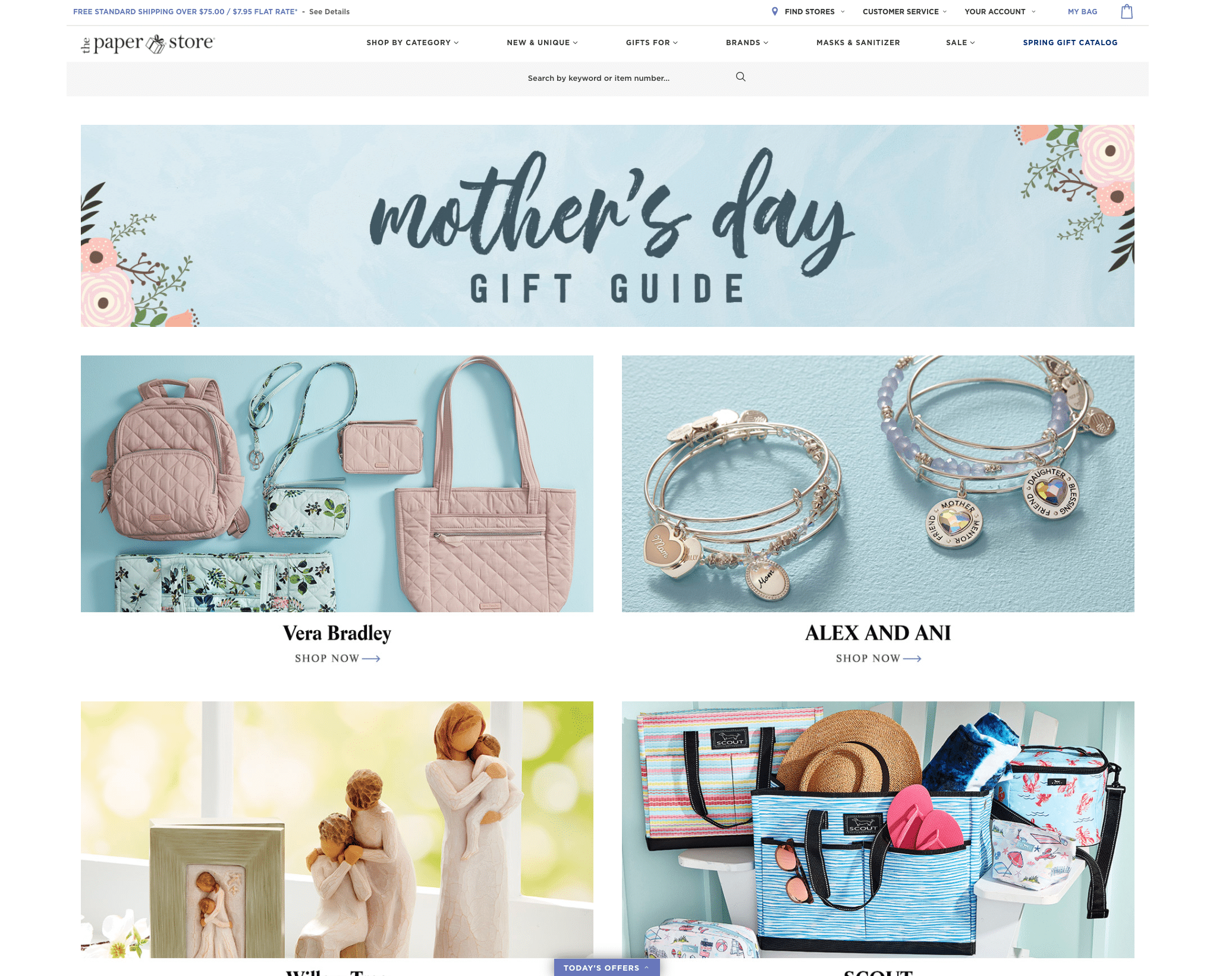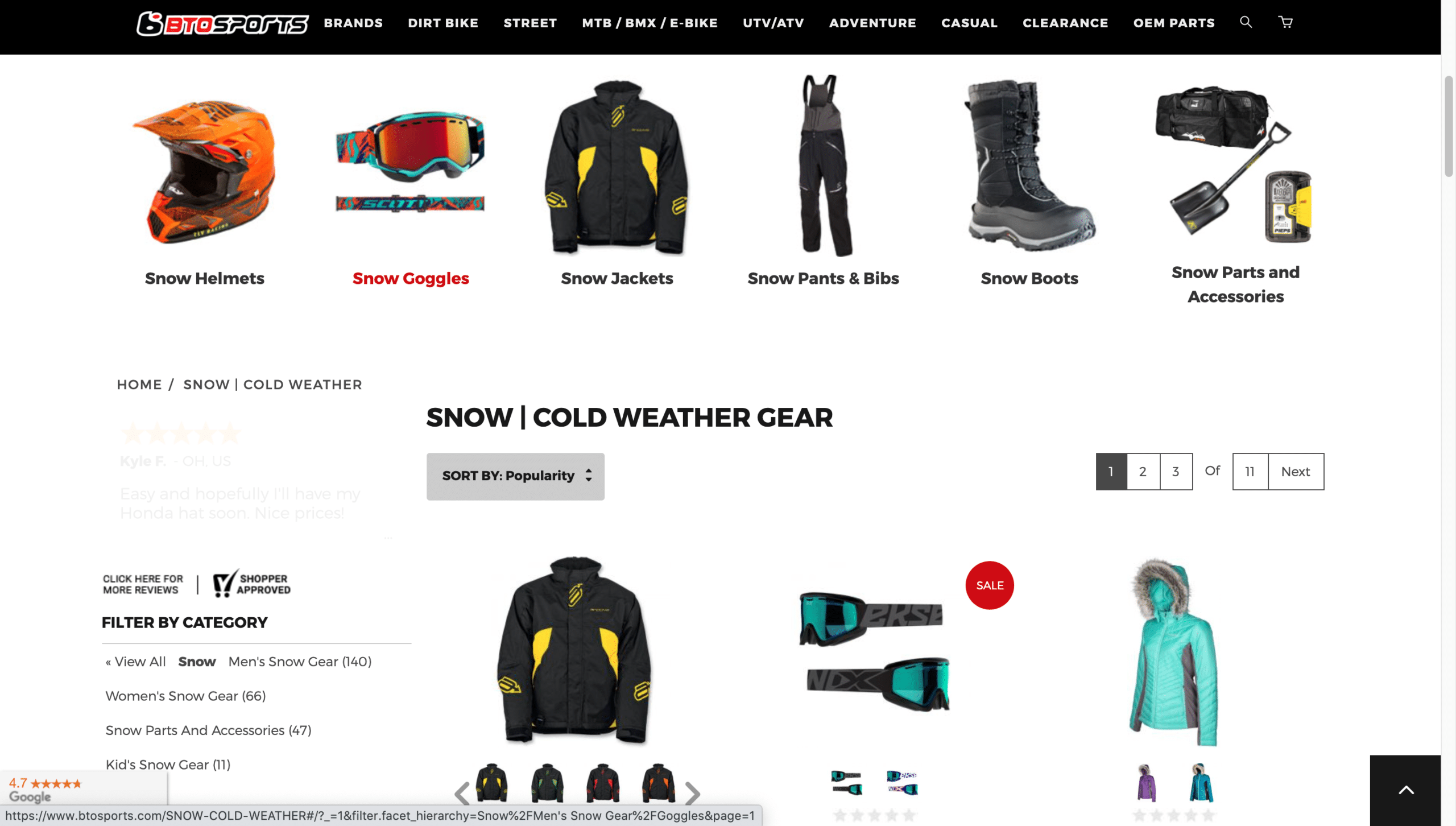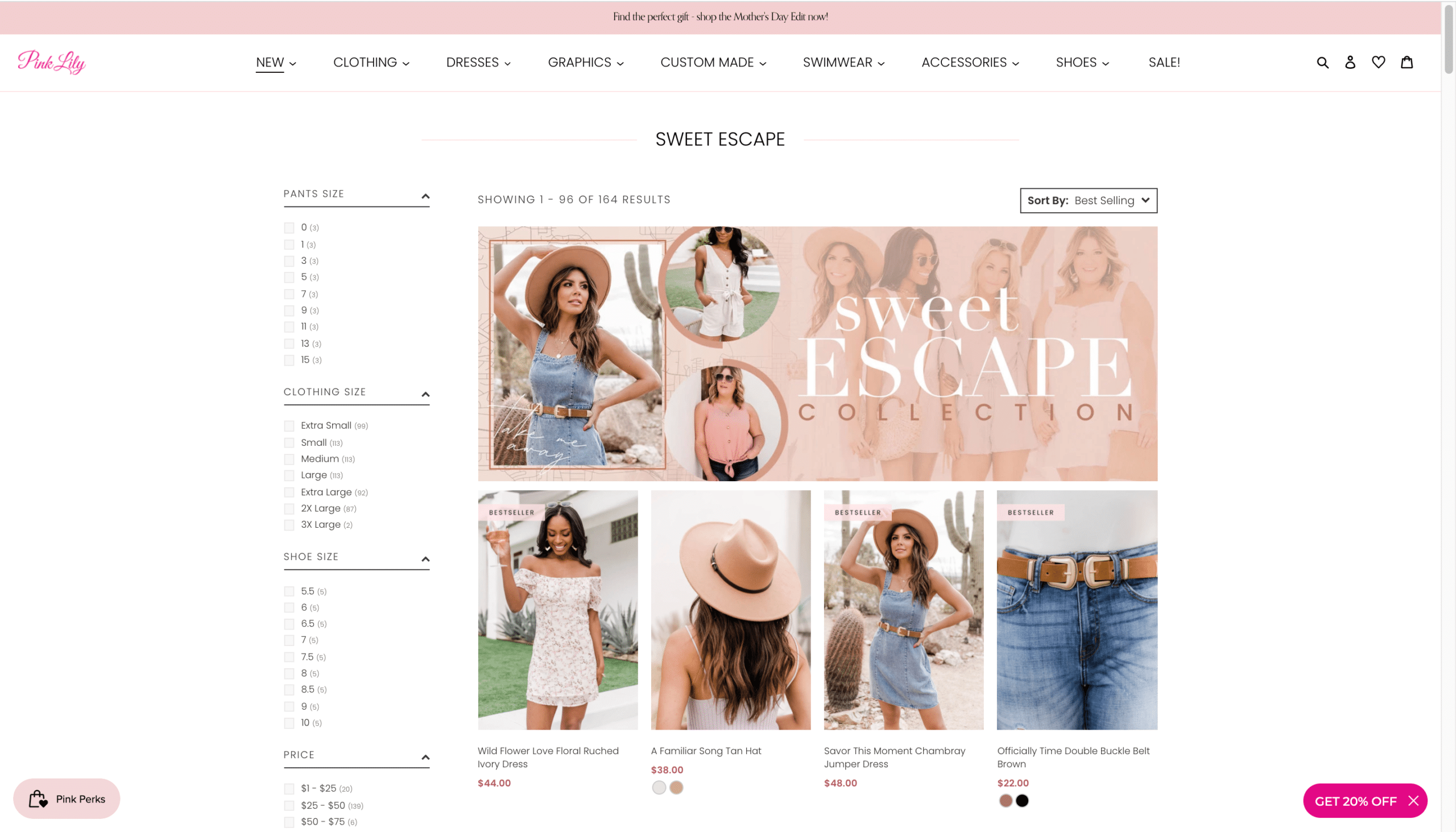Like many aspects of ecommerce, the concept of category merchandising originated in brick-and-mortar stores and has been adapted by online retailers.
While physical stores leverage displays and signage to promote products and arrange them in a way that encourages shoppers to make a purchase, ecommerce retailers have translated these techniques for the digital shopping experience.
We’re spilling the secrets every ecommerce site owner or manager needs to know to successfully implement online category merchandising.
What is category merchandising?
Merchandising is all about getting the right product in front of the right customer at the right time. When done right, merchandising can touch every step of the online shopping experience. Category merchandising is simply the application of merchandising techniques specifically at a product category or collection level.
For example, an apparel shop might have category pages for women’s tops, men’s tops, and kids’ tops. Category pages can also be used to curate selections of different product types, like a “shop by room” page on a home decor store that groups a mix of furniture, lighting, and accessories for the bedroom. Ecommerce category merchandising focuses on optimizing these category or collection pages to drive conversions.
Online category merchandising best practices
Now that we’re on the same page about what category merchandising means in the world of ecommerce, we can get to the good stuff. These six tips will help you effectively merchandise your category pages.
1. Leverage aesthetics
Group products together in a way that is aesthetically pleasing on category pages. Rather than randomly sorting products that share attributes, make them look more appealing by placing products with similar styles next to each other in the product grid.

Take inspiration from The Paper Store, which created this beautiful and helpful page to curate gifts for Mother’s Day. The page is more than a basic product grid, it shows subcategories and looks like a magazine to create a more engaging shopping experience.
2. Arrange complementary products together
Display complementary products next to each other on category pages to boost your cross-selling efforts.
An online furniture store could create a category page dedicated to home office setups and feature a desk, chair, lamp, and piece of artwork that go nicely together in each row. Customers may end up adding more items to their carts than they had planned when they see how products can be used together.

On their cold weather gear page, BTOsports uses several arrangement techniques to encourage customers to buy multiple items. The sports retailer shows subcategories at the top of the page to highlight the various types of products customers can find there. It also strategically displays accessories, like snow goggles, next to big-ticket items, like jackets, to remind customers of all the gear they might need.
3. Use badges to grab shoppers’ attention
Leverage badges to label products as “new,” “popular,” or “back in stock” on category pages to emphasize their popularity and make them more appealing.
By using merchandising badges that say “selling quickly,” you create a sense of scarcity and urgency that encourages customers to take action now, rather than waiting to make a purchase.

Fashion brand Pink Lily labels its bestselling items to grab shoppers’ attention and help products fly off the warehouse shelves.




